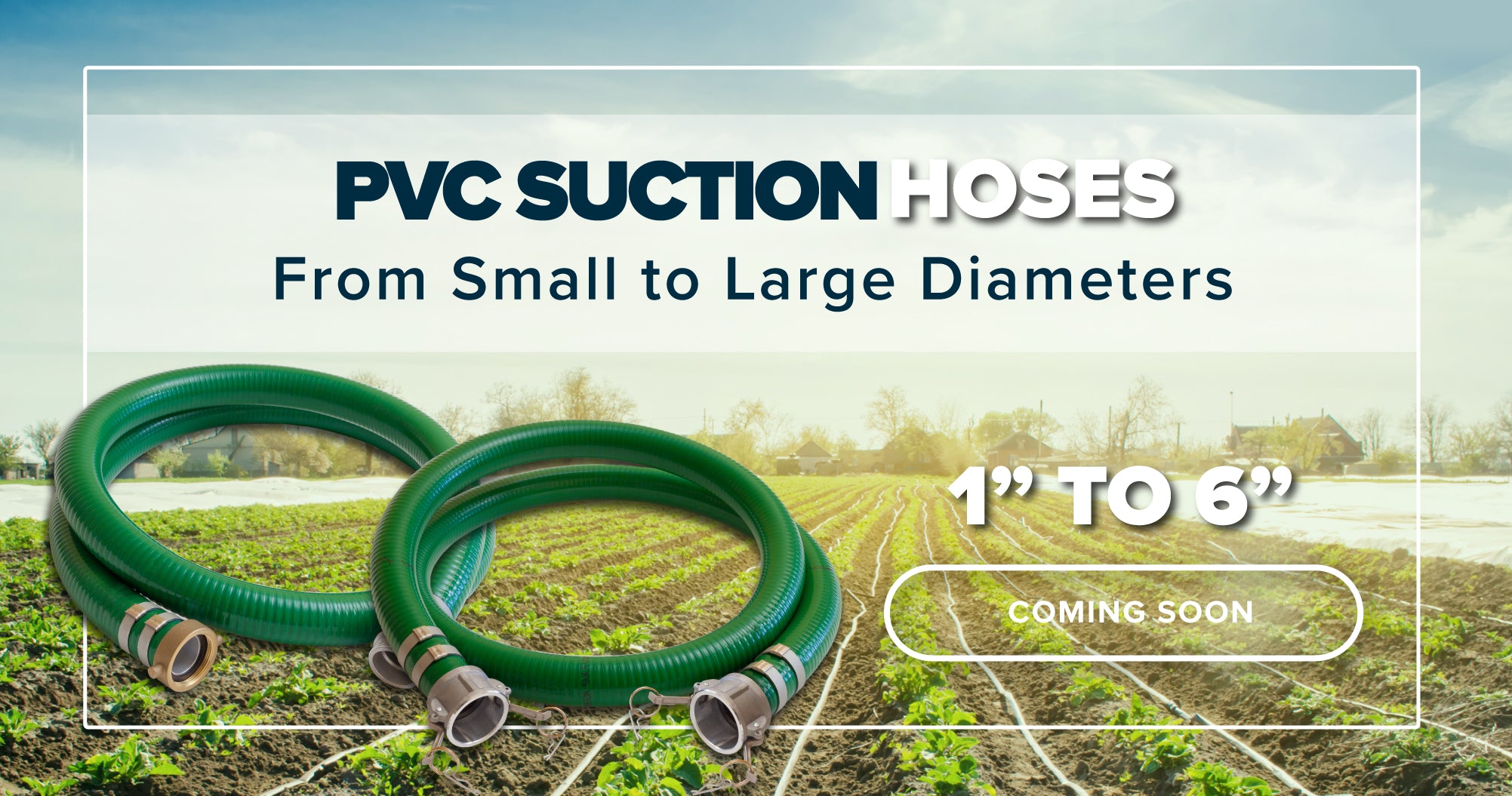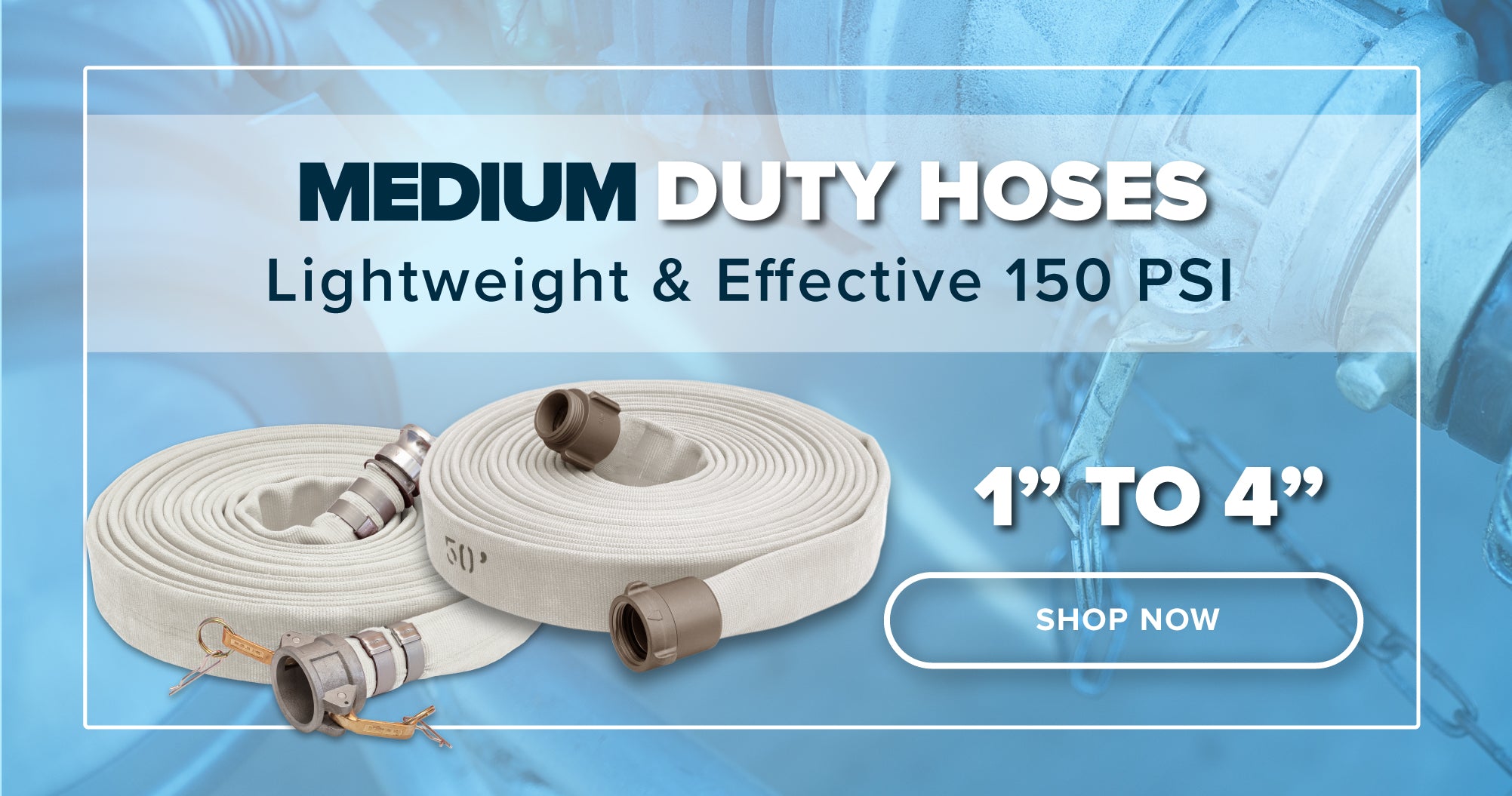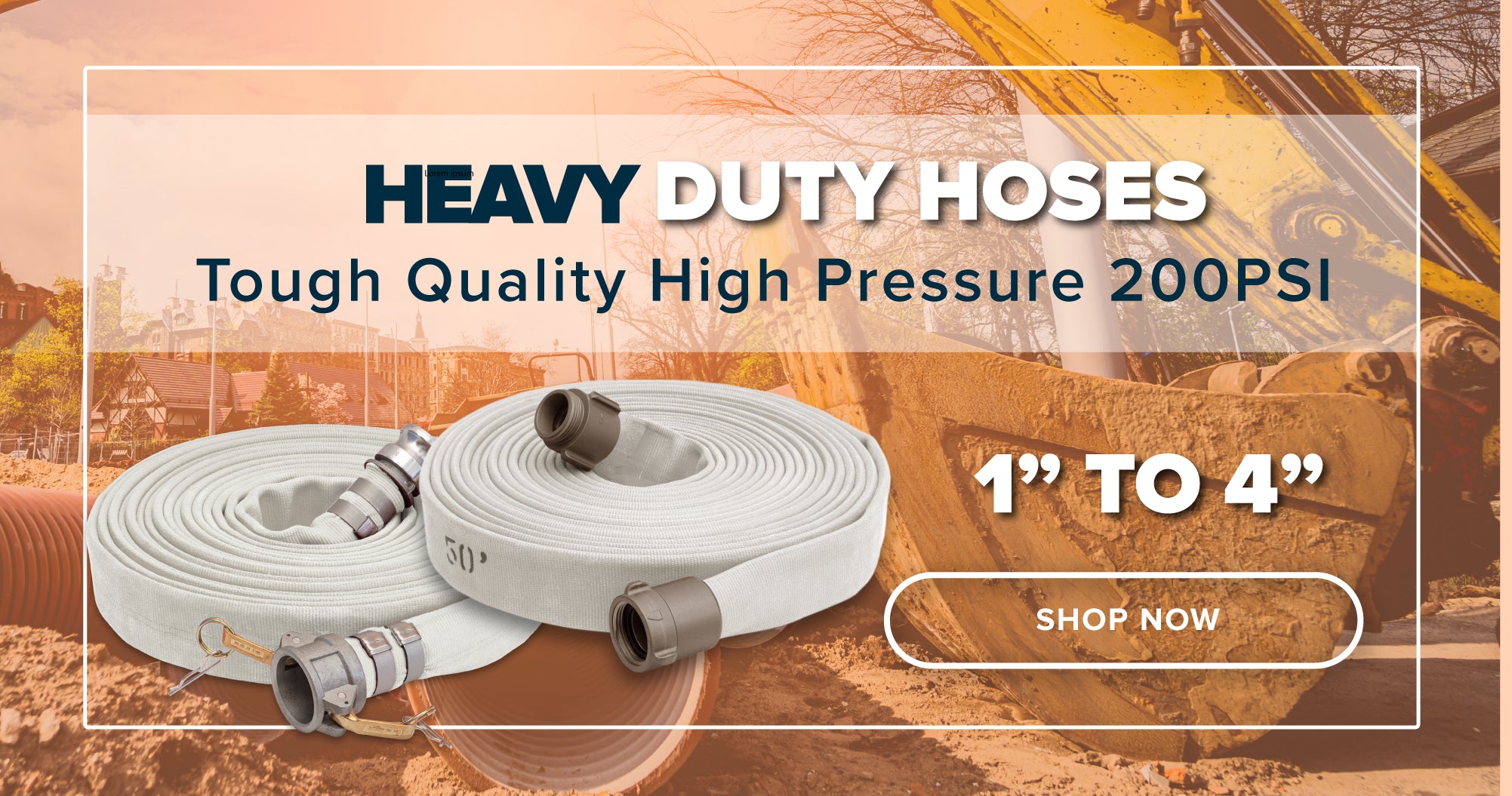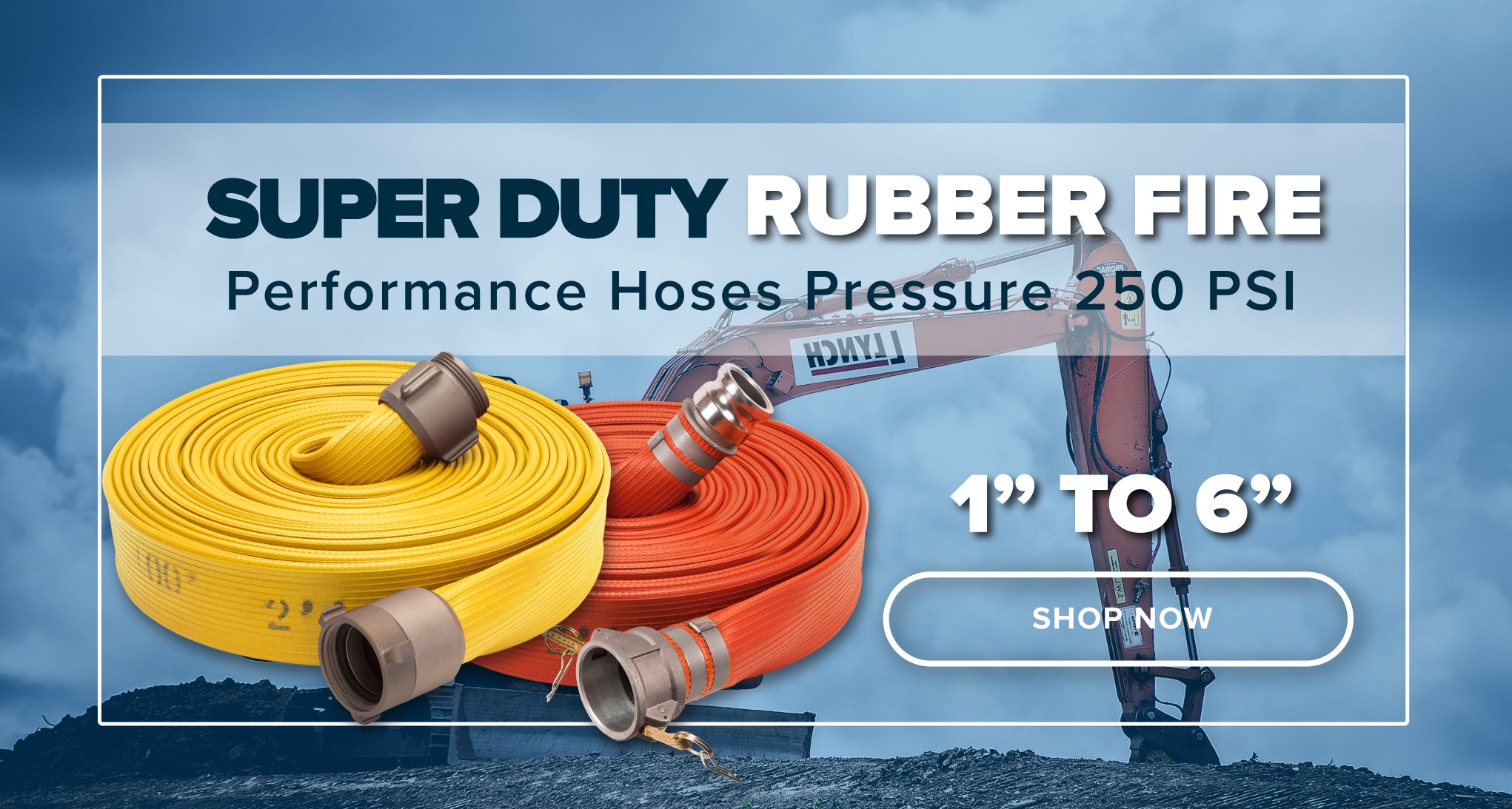Water pumps play a crucial role in various applications, from maintaining a lush garden to handling emergency water removal during floods. Regardless of the task at hand, selecting the right hose for your water pump is essential to ensure efficient water flow, prevent leaks, and extend the life of your equipment. In this comprehensive guide, we will explore the factors to consider when choosing a hose for your water pump, helping you make an informed decision that best suits your specific needs.
The Importance of Selecting the Right Hose
Before delving into the intricacies of hose selection, it's important to understand why choosing the right hose for your water pump is vital. An ill-fitting or subpar hose can lead to various issues, including:
-
Inefficient Water Flow: The wrong hose can restrict water flow, reducing the pump's overall efficiency. This can result in longer pumping times and increased energy consumption.
-
Leakage: A poorly fitted or low-quality hose may develop leaks, wasting water and potentially causing damage to your property or equipment.
-
Premature Wear and Tear: Using the wrong hose can lead to increased wear and tear on both the hose and the pump, ultimately shortening their lifespans and increasing maintenance costs.
-
Safety Concerns: In some situations, such as firefighting or handling chemicals, using the wrong hose can pose serious safety risks.
To avoid these problems and ensure the smooth operation of your water pump, it's crucial to carefully consider your hose options.
Types of Hoses
Before diving into the selection process, let's explore the different types of hoses available for water pumps. The choice of hose largely depends on the intended use, the type of pump, and the environmental conditions. Here are some common types of hoses for water pumps:
1. Suction Hoses:
Suction hoses are designed for use with pumps that draw water or other liquids from a source. They are typically used for applications like draining pools, dewatering flooded areas, or transferring water from one location to another. Suction hoses have reinforced walls to prevent collapsing under vacuum pressure.
2. Discharge Hoses:
Discharge hoses, also known as lay-flat hoses, are used for expelling water or other liquids from a pump to a designated location. They are commonly employed in agricultural irrigation, construction, and firefighting. Discharge hoses are often made of durable materials that can handle high pressure.
3. Pressure Hoses:
Pressure hoses are designed to withstand high-pressure applications, such as power washing, firefighting, and hydraulic systems. They are reinforced with multiple layers to ensure they can handle the force exerted by the pump.
4. Garden Hoses:
Garden hoses are primarily used for watering plants, gardens, and lawns. While they are not typically used with water pumps, they are worth mentioning for completeness. Garden hoses come in various materials and lengths, and their selection depends on factors like water pressure and hose diameter.
5. Chemical Hoses:
For applications involving the transfer of chemicals, it's crucial to use chemical-resistant hoses. These hoses are specially designed to prevent chemical reactions with the hose material and maintain the integrity of the liquid being transferred. Using the wrong hose for chemical applications can result in hazardous situations.
Now that you have an overview of the types of hoses available, let's dive into the factors to consider when choosing the right hose for your water pump.
Factors to Consider When Choosing a Hose
1. Material Compatibility:
One of the most critical factors to consider is the compatibility of the hose material with the liquid you'll be pumping. Different hoses are designed to handle specific fluids, so it's essential to choose a hose that won't react with or degrade when exposed to the liquid. For example, if you're transferring chemicals, opt for a chemical-resistant hose.
2. Hose Diameter:
The diameter of the hose affects the flow rate of water. In general, larger-diameter hoses allow for greater water flow. However, it's essential to match the hose diameter with your pump's capacity. Using a hose with a diameter too small for your pump can restrict flow and reduce efficiency, while a hose that's too large may not fit securely on the pump's outlet.
3. Hose Length:
Consider the distance between your water source and the pump, as well as the distance between the pump and the discharge point. Choose a hose length that provides enough reach without unnecessary excess. Longer hoses can reduce water pressure and efficiency, so it's crucial to find the right balance.
4. Pressure Rating:
The pressure rating of the hose should match the output pressure of your water pump. Using a hose with a lower pressure rating than the pump can lead to hose failure or leaks. On the other hand, a hose with a higher pressure rating than needed can be heavier and more rigid than necessary.
5. Temperature Range:
Consider the temperature of the liquid you'll be pumping and the environmental conditions. Hoses are designed to withstand specific temperature ranges, and using a hose that can't handle the temperature extremes in your application can result in damage or failure.
6. Flexibility and Durability:
The flexibility of the hose is essential, especially if you need to navigate around obstacles or work in tight spaces. A highly flexible hose may be more manageable, but it's crucial to balance flexibility with durability. Hoses that are too flexible may kink easily, while overly rigid hoses can be challenging to work with.
7. Reinforcement Type:
Different hoses are reinforced with various materials, such as polyester, nylon, or steel wire. The type of reinforcement affects the hose's strength and resistance to kinking or collapsing under pressure. Consider the level of reinforcement needed for your specific application.
8. Fittings and Connections:
Ensure that the hose you choose has compatible fittings for both the pump and the discharge point. Properly matched fittings are crucial to prevent leaks and ensure a secure connection. Additionally, consider using hose clamps or couplings for added security.
9. Environmental Conditions:
Evaluate the environmental conditions in which the hose will be used. Factors like exposure to sunlight, UV radiation, abrasion, and chemical exposure can impact the hose's longevity. Some hoses come with protective coatings or materials to enhance their resistance to environmental factors.
10. Budget:
While it's essential to choose a hose that meets your requirements, consider your budget. Hoses come in a wide range of price points, and more expensive hoses may offer additional features or durability. However, it's possible to find hoses that strike a balance between quality and cost.
Hose Maintenance and Care
Once you've chosen the right hose for your water pump, it's crucial to maintain and care for it properly to ensure its longevity and performance. Here are some essential maintenance tips:
-
Regular Inspection: Periodically inspect your hose for signs of wear, damage, or leaks. Replace any damaged hoses promptly to prevent further issues.
-
Cleaning: Clean the hose regularly to remove debris and contaminants that can affect water flow and hose integrity.
-
Storage: Store your hose properly to prevent kinking and damage. Coiling the hose neatly and hanging it on a hose reel can help prolong its life.
In conclusion, choosing the right hose for your water pump is a crucial decision that can significantly impact the efficiency and effectiveness of your pumping operations. To recap the key points:
-
Types of Hoses: Understanding the different types of hoses, such as suction, discharge, pressure, garden, and chemical hoses, is essential for selecting the one that suits your specific needs.
-
Factors to Consider: When choosing a hose, consider factors like material compatibility, hose diameter, length, pressure rating, temperature range, flexibility, reinforcement type, fittings, environmental conditions, and budget.
-
Maintenance and Care: Proper maintenance and care of your chosen hose are vital for its longevity and performance. Regular inspections, cleaning, storage, and avoiding sharp bends can help extend the life of your hose and ensure it operates at its best.
Selecting the right hose is not only about ensuring efficient water flow but also about preventing leaks, minimizing wear and tear on your equipment, and promoting safety in various applications. By carefully evaluating your requirements and considering the factors discussed in this guide, you can make an informed decision and find the perfect hose to complement your water pump, whether it's for irrigation, construction, firefighting, or any other purpose. Remember that investing in the right hose is an investment in the efficiency and reliability of your water pumping operations.







